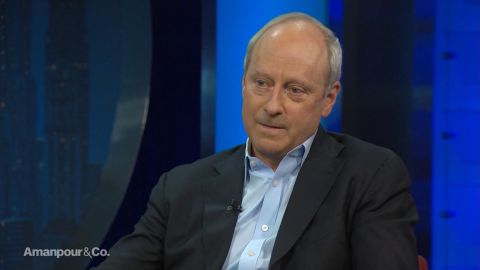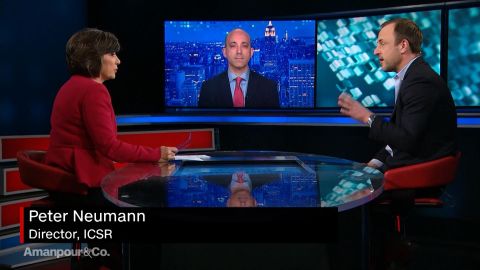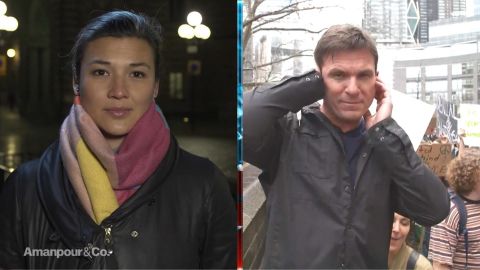Read Transcript EXPAND
BILL WEIR, CORRESPONDENT, CNN: Well, Christiane, we’re at Columbus Circle. And the march from Columbus Circle up to the Museum of Natural History has just touched off. That is a poignant site of the countless field trips for this generation to see the history of this planet and see some of the predictions as to where this planet is headed. When you put it in perspective, an infant born today according to some predictions won’t be able to eat wild seafood by the time she’s 30. Every new drum beat report that comes either out of the United Nations, scientists, or from academies of science around the world, paints the grimmest possible future for this generation. Just a report came out yesterday that if the world were to stop burning carbon today, the heat that’s already baked into the atmosphere will raise the Arctic temperatures between three and five degrees Celsius which means sea level rise, hundreds, if not hundreds of millions of climate change refugees by the middle of this century. And so this generation, started by those young activists you talk about, are trying to get the grownups to sit up and pay attention to this. Greta Thunberg in Sweden, who went before the billionaires at Davos and the politicians at the Climate Convention in Poland, put it in stark terms, we don’t want you to give us hope, we want you to panic.
CHRISTIANE AMANPOUR: Right.
WEIR: Treat this like the emergency it is, like the house is on fire because it is. And those sound bites [14:35:00] inspired some of the activists that are here today, including 7th grade, 15-year-old named Alexandria Villasenor, who has been every Friday parked on a park bench outside of the United Nations, a one-girl strike trying to generate more followers. And this is the result of the fruits of her labor.
AMANPOUR: Yes.
WEIR: She says this is just the beginning, that they’re not going away anytime soon.
AMANPOUR: Well, I tell you it’s heartwarming, Bill. And it’s nice to see you having to muffle your ears against the passion behind you. You mentioned Greta Thunberg. Let us turn now to Atika Shubert who is in Stockholm. It looks like there the protest obviously ended. It is nightfall there in Stockholm. What did you see? What was it like? And you did also talk to Greta today.
ATIKA SHUBERT, CORRESPONDENT, CNN: We did. And it was incredibly inspiring to see thousands of students come out. And I think Greta herself was a bit overwhelmed at the sheer number of students that turned up for this. And remember, she started this protest on her own, alone, striking every day at first, skipping out on school with her placard that says, “School strike for climate change” right here in front of Sweden’s Parliament. And now, it’s become this massive global movement. But it’s interesting, I spoke to her. I asked her if she was happy with what she’s seeing, and even though she’s happy to see the crowds, she’s not happy that there’s no political results yet. And she’s determined to keep the pressure on.
About This Episode EXPAND
As New Zealand reels from the worst terror attack in its history and police arrest a suspect from Australia, Kevin Rudd, former Australian Prime Minister, speaks to Christiane, and Peter Neumann, the founding director of the International Centre for the Study of Radicalisation and Political, and Jonathan Greenblatt, CEO of the Anti-Defamation League, discuss what is fuelling these deadly attacks.
LEARN MORE



